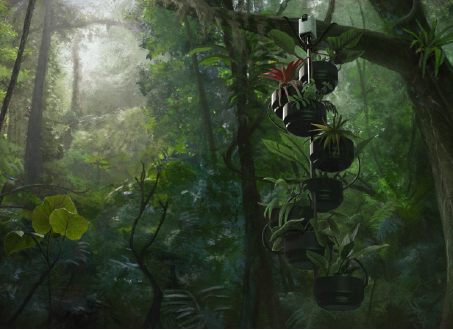Development of open source camera trap powered by plant microbial fuel cell
We propose a competition where teams of plant biologists, designers and electrical engineers would be invited to design, build and test a prototype of plant microbial fuel cell (pMFC).
The Idea
Under the continuing threats of climate change, habitat loss and the illegal wildlife trade, our planet’s biodiversity is being pushed to its limits. We urgently need to understand and protect our natural resources, but it is a challenge to assess change in real-time to understand how species are faring, and monitor wildlife populations across vast areas of remote landscape, with limited resources and manpower.
Conservationists at the Zoological Society of London have been examining how to overcome the time-sink presented by the maintenance of field equipment – changing batteries in camera traps and sensors, for example - that are regularly deployed as part of species monitoring and protection activities. This issue is a particularly significant challenge for conservationists, who are often pushed to their limits in terms of time and resource.
An artistic representation of the pMFC
We propose a competition where teams of plant biologists, designers and electrical engineers would be invited to design, build and test a prototype of plant microbial fuel cell (pMFC). The camera trap powered by pMFC could contribute to solve this pressing challenging situation.The pMFC designed during the competition will serve as an environmentally friendly power supply to power sensor and camera-trap in remote field locations such as tropical forests.
The aim is that these prototypes is to contribute to the development of solutions that solve battery maintenance challenges associated with deployments of conservation technology and ultimately allowing to perform better monitor and assess the status of our natural resources worldwide.
The Team
Dr Paolo Bombelli,
Postdoctoral Researcher, Department of Biochemistry, University of Cambridge
Dr Alasdair Davies,
Suttleworth Fellow, Zoological Society of London
Ms Rachael Kemp,
Zoological Society of London




